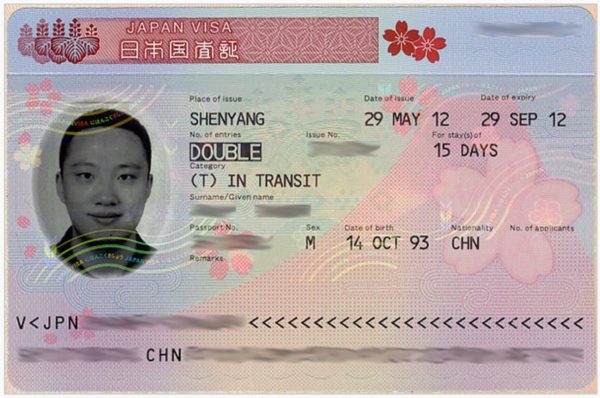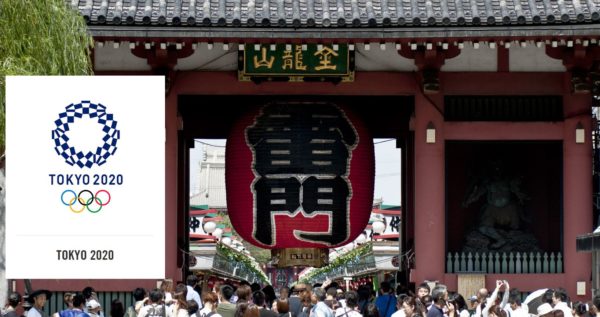Japanese visa guide for tourist and short-term trips to Japan

Japan is a great country to make a life in
Japan is an awesome place to live, work and play
Working and living in Japan is a dream for many people around the world, but if your uncertainty about your visa status in Japan is holding you back, don’t let that be what keeps you from your dreams of living in Japan.
Whether you are from India, Azerbaijan, Germany or the UK, there is a path for you to come to Japan. You can study in Japan and still work part time or even get a full-time job in many cases.
Once you get to Japan, the opportunities are endless, especially in Tokyo. Read the Live Work Play Japan guide, “Advanced Guide to Teaching English in Japan: Raise your Income by 20% in Six Months” for everything you need to know to get a high paying job with English in Japan.
Know before you land if you need a visa to Japan

Check below to see if your country is one of many that allows you get to Japan without a visa. If your country isn’t on the list, don’t worry. There are still ways to get to Japan.
Disclaimer: Live Work Play Japan is not a government agency. We have no affiliation with the government of Japan. All information should be double checked with the proper authorities representing the Japanese immigration process and your native country. The best place to start would either be the nearest Japanese embassy or consulate in your country or the MOFA website.
Applying for a visa to go to Japan is not necessary for over 67 countries
If you want to just double check to see if your country is on the visa-exemption list for Japan, check this list below by the 日本国外務省 Nihonkoku Gaimusho Japanese Ministry of foreign affairs.
See below for the official list of countries allowed in Japan without a visa first as per the MOFA website.
Most on the list below will be able to stay in Japan for 15 days, 90 days or 180 days at a time on tourist visas or other short-term visas.
If you end up wanting to stay in Japan longer than 90 days, make sure to check you aren’t making these expensive mistakes when finding an apartment in Japan. You don’t want to lose that kind of money when accommodation in Japan can really be the most expensive part about your stay here.
Countries that don’t need a visa to land in Japan:
Asia |
Europe |
| Brunei (15 days) | Andorra |
| Indonesia ([Note1]) | Austria([Note8]) |
| Malaysia ([Note2]) | Belgium |
| Republic of Korea | Bulgaria |
| Singapore | Croatia |
| Thailand ([Note3])(15 days) | Cyprus |
| Hong Kong([Note4]) | The Czech Republic |
| Macao([Note5]) | Denmark |
| Taiwan([Note6]) | Estonia |
| North America | Finland |
| Canada | Former Yugoslav Republic of Macedonia |
| United States | France |
| Latin America and the Caribbean | Germany([Note8]) |
| Argentina | Greece |
| Bahamas | Hungary |
| Barbados([Note7]) | Iceland |
| Chile | Ireland ([Note8]) |
| Costa Rica | Italy |
| Dominican Republic | Latvia |
| El Salvador | Liechtenstein([Note8]) |
| Guatemala | Lithuania |
| Honduras | Luxembourg |
| Mexico([Note8]) | Malta |
| Surinam | Monaco |
| Uruguay | The Netherlands |
| Oceania | Norway |
| Australia | Poland |
| New Zealand | Portugal |
| Middle East | Romania |
| Israel | San Marino |
| Turkey([Note7]) | Serbia |
| Africa | Slovakia |
| Lesotho([Note7]) | Slovenia |
| Mauritius | Spain |
| Tunisia | Sweden |
| Switzerland([Note8]) | |
| The United Kingdom([Note8]) |
Nationalities that can stay for up to 6 months (180 days) in Japan via extension
For the above nationalities, the MOFA website reports the following:
“For nationals of those countries with visa exemptions permitting stays of up to 6 months under the bilateral visa exemption arrangements, those who wish to stay in Japan for more than 90 days are required to apply for an extension of the period of stay to the Ministry of Justice (Regional Immigration Bureau) before the period of permitted stay is to expire.”
Nationalities that can stay in Japan for up to 90 days on non-extendable visas
Andorra, Argentina, Australia, Bahamas, Barbados, Belgium, Canada, Chile, Colombia, Costa Rica, Croatia, Cyprus, The Czech Republic, Denmark, Dominican Republic, El Salvador, Estonia, Finland, France, Greece, Guatemala, Honduras, Hungary, Italy, Israel, Iceland, Lesotho, Luxembourg, Malta, Macedonia, Mauritius, Monaco, the Netherlands, New Zealand, Norway, Poland, Portugal, San Marino, Serbia, Singapore, Slovenia, South Korea, Spain, Surinam, Sweden, Tunisia, Turkey, The USA and Uruguay.
Always reconfirm with either the MOFA website or your nearest Japanese embassy or consulate.
Read below about special exceptions for citizens of Taiwan, Hong Kong, Macau, Malaysia, and others.
Easing restrictions for ASEAN nations

ASEAN nations
You may notice that in recent years, several ASEAN country passport holders cannot enter Japan and obtain a visa on arrival.
Asianvisa.com also reports that Japanese are able to visit ASEAN countries without a visa as more and more are going to ASEAN nations for business and tourism.
ASEAN countries that enter Japan without a visa
The ASEAN countries that can enter Japan without a visa as of today are Thailand, Brunei, and Indonesia (provided you register with your ePassport ahead of time). But notice that they can only stay in Japan for 15 days at a time.
*Brunei and Thai nationals with a return ticket, evidence of financial support (cash/credit card) and whose activities in Japan are categorized as “Temporary Visitor,” may enter Japan for not more than 15 days without a visa.
Nationals from Thailand and Brunei will need to show proof of a return ticket from Japan within 15 days. Furthermore, they must show financial support in cash or credit demonstrating that they can stay in Japan for the as long as they intend to stay. Lastly, they may only engage in activities authorized for temporary visitors (sight seeing, seeing friends, attending lectures or meetings).
Vietnamese, Indonesian and Filipino passport holders: Be aware of inaccurate news online
The MOFA website reports the following regarding Vietnamese and Filipino passport holders:
“Recently, false news have been circulating regarding the Japanese Visa for nationals of the Philippines, Indonesia, and Vietnam. The news mentioned that Japan has lifted its Visa for the Philippines, Indonesian and Vietnamese.
The Embassy/ Consular office/ of Japan in the Philippines would like to clarify to the public that Japan has not lifted the visa requirements for nationals of the Philippines, Indonesia and Viet Nam contrary to the recent reports. However, Japan has opened multiple-entry Visas to nationals of the Philippines, Indonesia, and Viet Nam. (Japan will continue to accept and deliver Visa applications for Japan through accredited agencies.)
For details about the Visa application and issuance of multiple-entry Visa please refer to the information at: (http://www.ph.emb-japan.go.jp)”
See this article here that claims that now Vietnamese and Filipinos can enter Japan without a visa: “Vietnamese and the Filipino passport holders also are now able to stay in Japan for 15 days on arrival!”
Sorry guys. I almost believed it myself, but you always must verify visa information with the government of Japan. Check at your local embassy or consulate for the most accurate information. Or check on the MOFA website. It is up to date and the best source of information regarding your ability to stay in Japan.
Verified relaxation of visas for Filipino, Vietnamese, Indonesian and Indian nationals to Japan
The good news is that although visa requirements still exist for people from the Philippines, Vietnam, Indonesia, and India, they are less strict than they used to be.
The MOFA website reports:
(1)” For e-passport holders of Indonesia, visas will be exempted based on prior registration at the Embassy or Consulates General of Japan in Indonesia.
(2) For nationals of the Philippines and Viet Nam, multiple-entry visa requirements will be substantially relaxed, and requirements for single-entry tourism visas will be relaxed to a quasi-exemption-equivalent level when applied via specified travel agencies. These measures will also be applicable for nationals of Indonesia in addition to the above.
(3) Additionally, the issuance of multiple-entry visas for nationals of India, which was decided when Prime Minister Shinzo Abe visited India in January this year, will commence by this summer.”
Here is the embassy in Manila of the Philippines
The Japanese embassy in Jakarta, Indonesia
The Japanese embassy in Hanoi, Vietnam
How Indonesian passport holders can enter Japan without a visa for 15 days
Even I was a bit confused doing research for this guide about the case of Indonesia. On many websites, you will read that Indonesians can now enter Japan without a visa for up to 15 days at a time. Then on the MOFA website I read that they need a visa.
The truth is, Indonesians seeking a short-term stay in Japan can, but they have to apply for a visa-waiver using an e-passport system.
Read more on the MOFA website:
Visa Waiver for Indonesian Nationals Based on a System of E-Passport Registration
Malaysian nationals also can enter Japan with an ePassport
The MOFA website reports:

ePassport
“For nationals of Malaysia (since July 1, 2013), visas are not required only for holders of ePassport in compliance with ICAO standards. Those who do not hold such ePassport are advised to obtain a visa in advance, otherwise will be strictly examined and may be refused entry to Japan.”
Hongkong and Macao citizens entering Japan
The MOFA website reports that holders of a Special Administrative Region passport (SAR passports) may enter Japan without a visa.
British Nationals Overseas (BNO) residing in Hong Kong also do not need a visa to Japan.
Special visas for Nikkei coming to Japan
For all the Brazilians you see in Japan, it is a surprise to see that Brazil is not on this list. Then again, if you come across Brazilians, Peruvians, or Colombians living in Japan, it is very likely that they are 日経 nikkei or of Japanese heritage. Japan offers special visas to people of Japanese descent.
For more detailed information on each country’s visa stipulations, see the MOFA website itself.
These countries need visas to land in Japan:
I. Russia, Georgia and the Common Wealth Independent States (CIS)
CIS nation passport holders

Gorgeous Georgia
*CIS nations formed in 1991 after the collapse of the Soviet Union: Armenia, Belarus, Kazakhstan, Kyrgyzstan, Moldova, Russia, Tajikistan, Turkmenistan, Ukraine, and Uzbekistan and as of 1993, Azerbaijan and Georgia .
*Georgia withdrew from the CIS states in 2012. That being said, Georgians still need a visa to enter Japan.
Most countries in Africa, Central Asia, South Asia (India, Nepal, etc.)
Almost all European countries and many countries in the Americas are allowed visa-free entry to Japan. Check the above list to see if your country is not on the visa-free list.
II. China

A double-entry Japanese transit visa on a Chinese passport
A new relaxation of visa requirements for Chinese was announced in 2016
The MOFA website reports:
(1) Multi-entry visas for short-term stay with business purpose and for cultural or intellectual figures
The scope of applicants will be expanded and the validity period of the visas will be extended from five years to 10 years maximum.
(2) Single-entry visas for students, graduate students and alumni of the universities of the Ministry of Education of China
Students, graduate students, and alumni of the universities of the Ministry of Education of China are allowed to submit a certificate of student status or graduation instead of the document to confirm financial capability.

Reuniting with my Chinese classmates from studying in Japan. All held down 20 hour a week jobs while we studied in Japan together. *20 hours is usually the maximum students are allowed to work in Japan.
Read here for details: Relaxation of Visa Requirements for Chinese Citizens
How to apply if you aren’t from China, Russia, the CIS countries, or Georgia.
If you are from a country other than China, Russia, the CIS Countries, or Georgia and wish to come to Japan for a short-term stay, see here for your procedure.
Or just click on the link for PDF that pertains to you below:
- Outline of Application Procedures for Single Entry Visas (for Those with Nationalities Other Than China, Philippines, Russia or NIS Countries) (PDF)

- Outline of Application Procedures for Multiple Entry Visa for Nationals of Viet Nam and India (for business purpose, and cultural or intellectual figures) (PDF)

- Outline of Application Procedures for Multiple Entry Visa for Nationals of India (PDF)

- Outline of Application Procedures for Multiple Entry Visa for Nationals of Indonesia, the Philippines, and Viet Nam (PDF)

- Outline of Application Procedures for Multiple Entry Visa for Nationals of Qatar (PDF)

*Remember that citizens of Taiwan, Hongkong and Macau do not require a visa to Japan
As long as your passport includes an identification number, you won’t need a visa to Japan as a Taiwanese citizen.
Look above where we saw how citizens of Hong Kong and Macau who hold Special Administrative Region (SAR) passports do not need a visa for entry to Japan either.
See the MOFA website for more details.
Visa flow: What you need to get a visa to Japan
Although a bit more tricky for some in practice, there is a process you can follow to apply for a visa to Japan.
Check out the MOFA website for more detailed information.

From the MOFA website. The visa flow
The best place to start is to contact your country’s nearest Japanese embassy or consulate to you.
Business and academic visits to Japan easing
Good news for Vietnamese and Indian business personnel and academics too:
“Currently, Vietnamese and Indians can obtain multiple-entry visas of up to five years in duration. The change will grant them 10-year visas.
The 10-year visas will be the longest that Japan issues, the ministry said.
‘We hope this will increase repeat visits to Japan and enhance convenience in businesses,’ Kishida told a news conference.
Holders of such multiple-entry visas will be restricted to visiting Japan for business purposes or academic exchanges but can then re-enter multiple times for tourism or to meet friends and families, the ministry said.”
Job hunting in Japan on a tourist visa
If you want to enter Japan as a tourist and then find work in Japan, you can possibly use this route. But be careful, it is usually illegal to start work in Japan on a tourist visa. However, going to an interview or negotiating your first job is absolutely ok. That is in fact what we recommend you do if you can come to Japan. Searching for jobs on the ground beats searching solely online no matter how you play it.
Check carefully with your nearest Japanese embassy or consulate for the laws and regulations to obtain a visa in Japan for the passport you hold.
For more strategies that you can use to get interviews, a job and then a company to sponsor your working visa, check the methods section of our Advanced Guide to Teaching English in Japan for everything you need to know to get a high paying job with English in Japan.
The Tokyo Olympics and the attraction of up and coming Asian tourists to Japan

The Tokyo Olympics 2020 will draw millions of tourist; many from Asia
I believe that with the upcoming Tokyo Olympics in 2020, we may see a day very soon when all of the above passport holders can enter Japan without any form of registration for at least 15 days. If it happens, it would likely be before 2019. Keep posted to MOFA for up to date news.
If you are going to be travelling around in Japan, this guide to the coolest places to visit (not just the most touristy) should help you plan your way around.
Terms used throughout this guide:
MOFA– The Japanese Ministry of Foreign Affairs
Temporary Visitor: Someone on a visa allowing them to enter Japan to conduct tourism activities, visit friends and attend business meetings & lectures.
Resources we recommend:
- The MOFA website for information regarding visas to Japan and foreign-Japanese relations HERE
- Comprehensive list of Japanese embassies and consulates by region and country HERE
- The Advanced Guide to Teaching English in Japan: Raise your Income by 20% in Six Months by clicking HERE
- The Live Work Play Japan guide on finding an apartment in Japan– Top 5 Mistakes Expats Make When Searching for an Apartment in Tokyo (or Anywhere in Japan) HERE

Japan is waiting for you. What are you waiting for?
Disclaimer: We want to remind you that Live Work Play Japan is not a government agency or a recruiter. We have no affiliation with the government of Japan. All information should be double checked with the proper authorities representing the Japanese immigration process and your native country. The best place to start would either be the nearest Japanese embassy or consulate in your country or the MOFA website.


